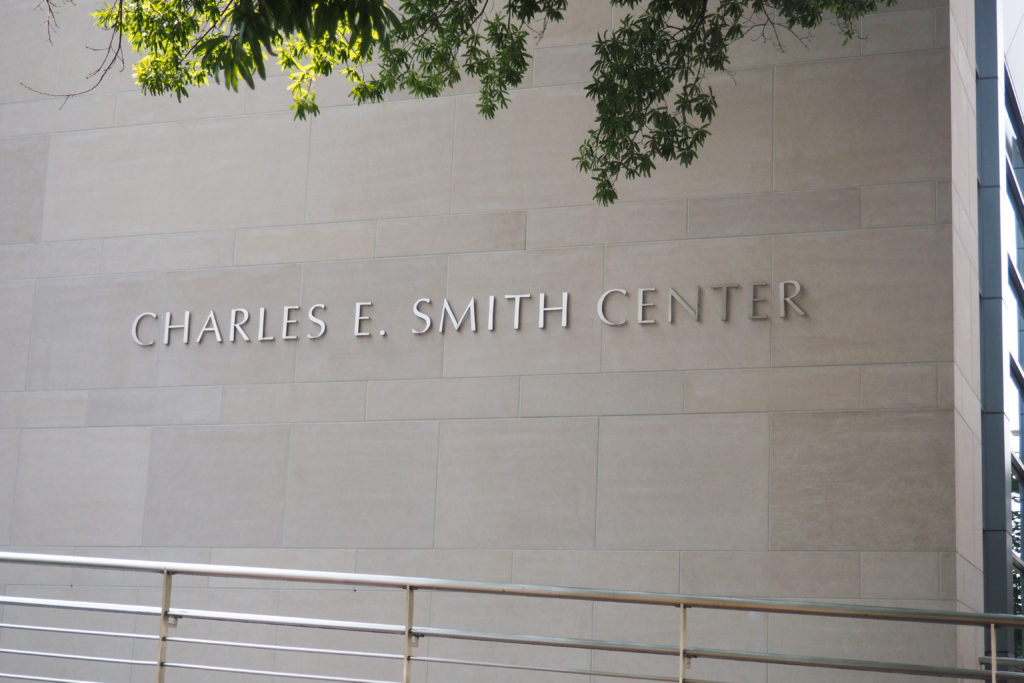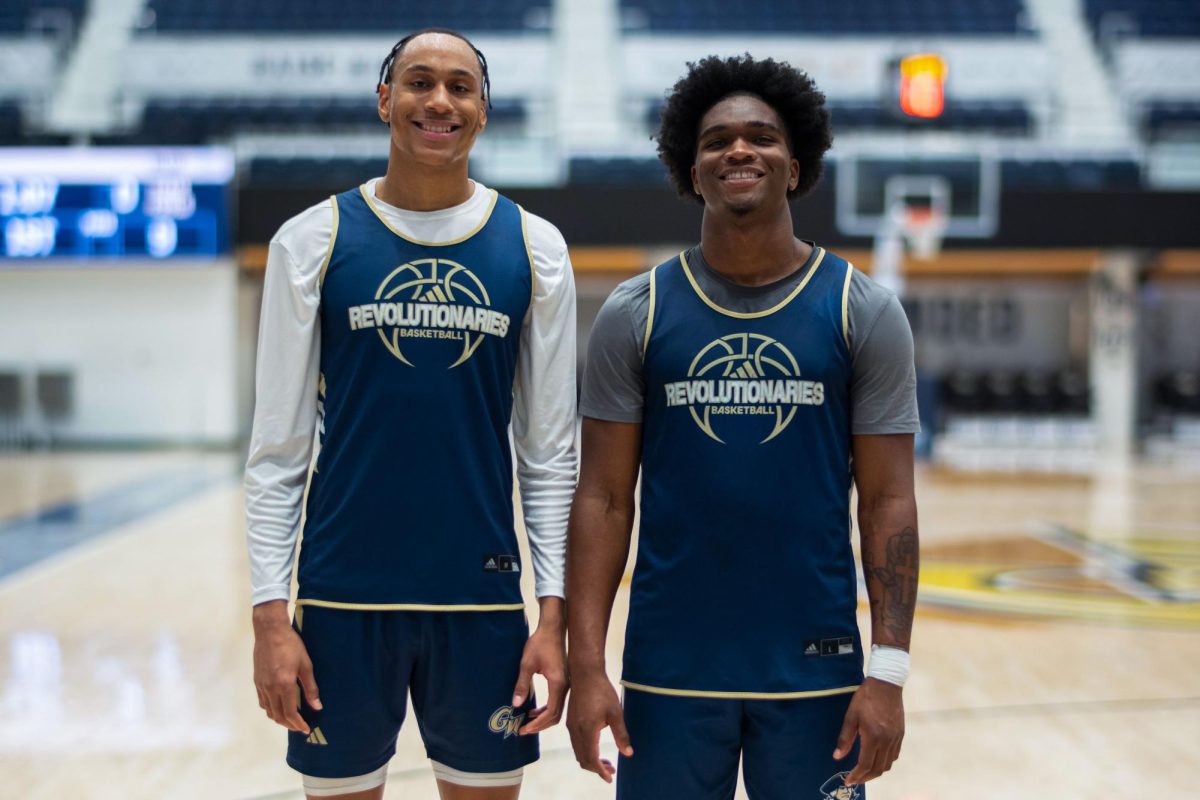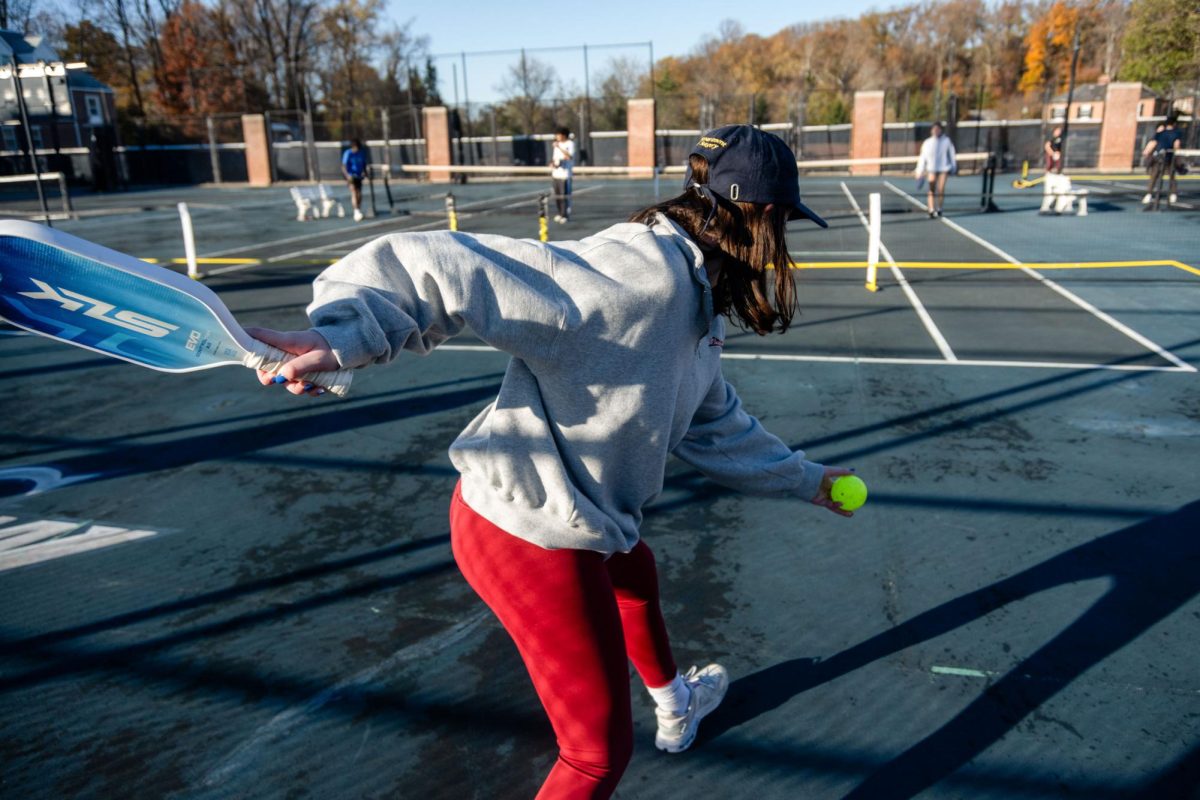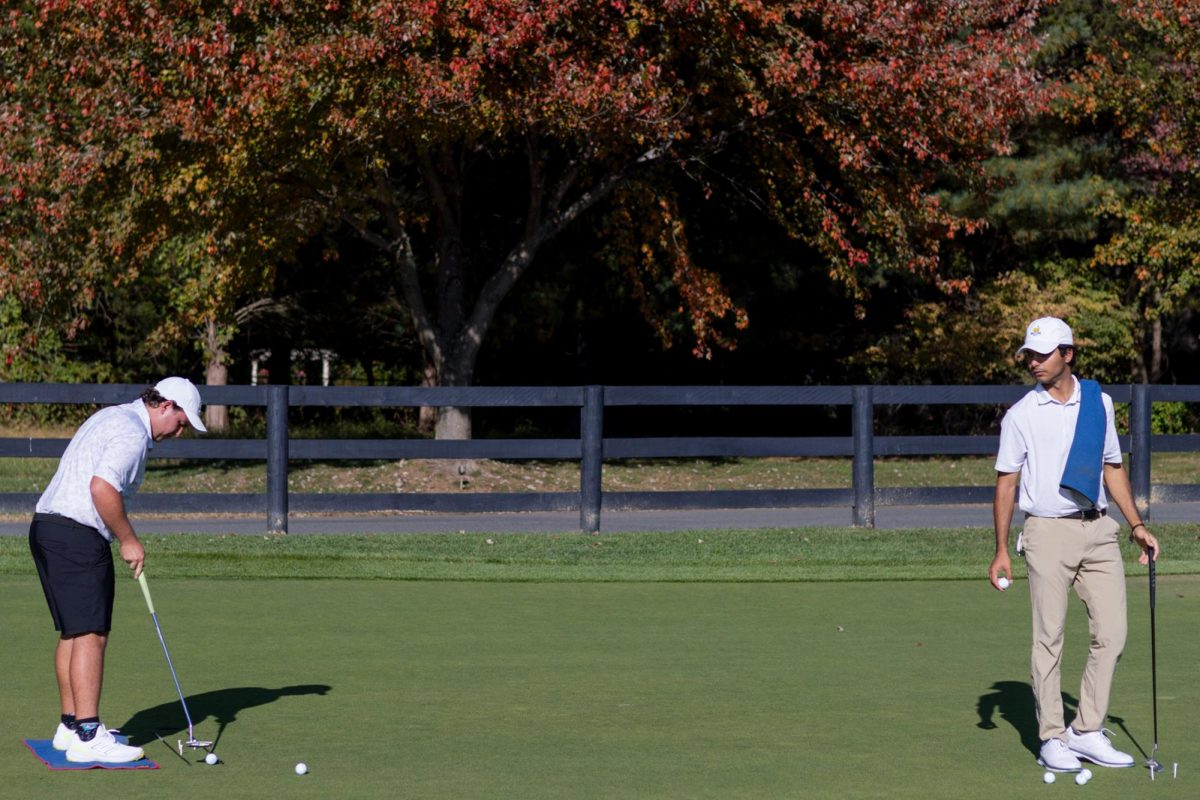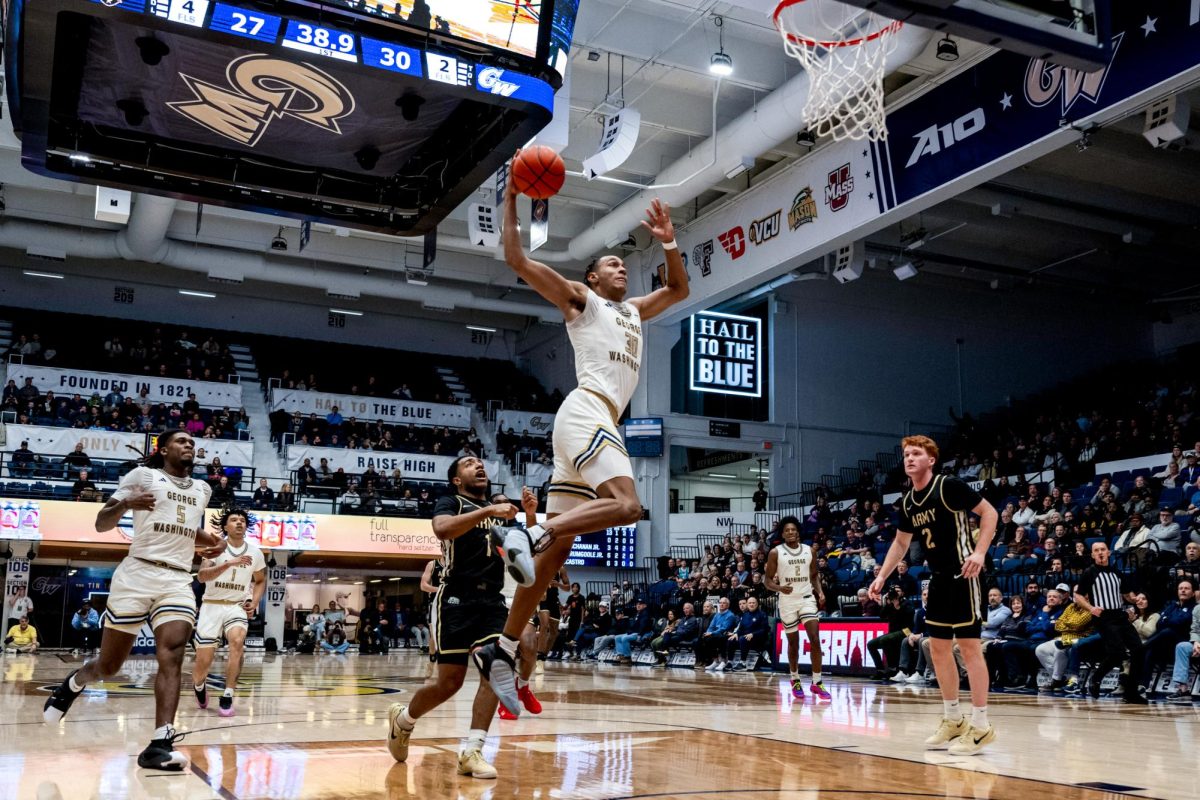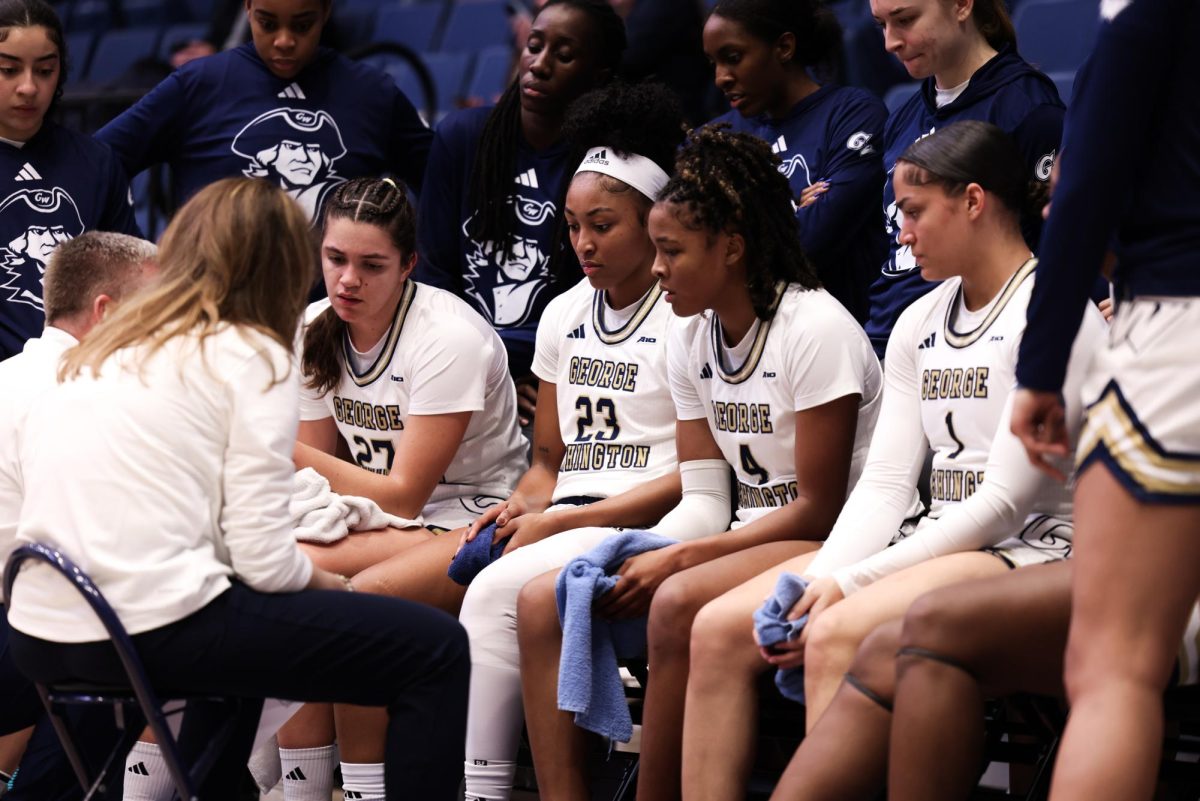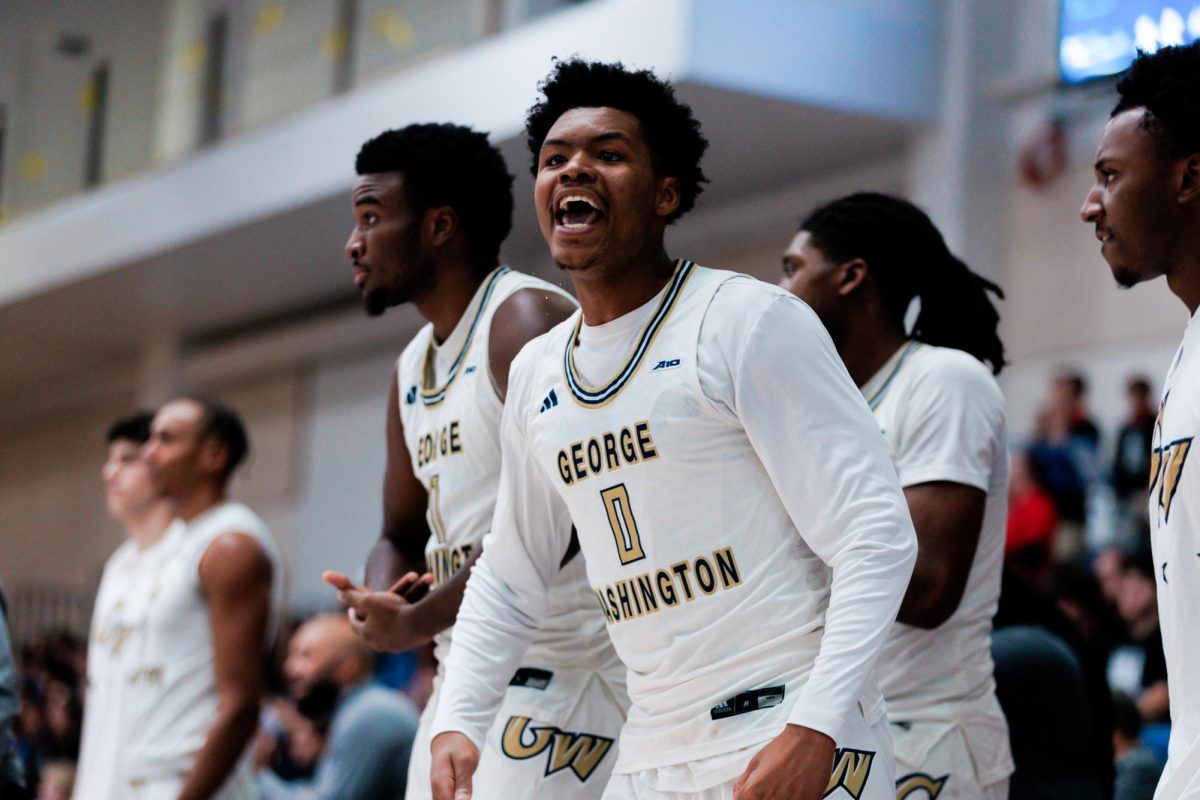When the pandemic threw a wrench into the usual routine for the Athletic Department, volunteers stepped up to ensure the 2020-21 season could flow without interruption.
A regular season would have been composed of student and local workers who are paid by the hour to help staff games, but officials said they asked GW’s athletic personnel to serve as volunteers to assist with athletic operations because they were already included in the University’s testing cohorts, which was limited to GW staff. Volunteers said they didn’t feel pressured to take shifts and their work over the course of the pandemic allowed them to feel a sense of camaraderie with other workers.
“Volunteers were asked to staff virtually every aspect of the operation: from broadcasting to camera work, checking in student-athletes and staff at the testing site, verifying clearance to be in certain spaces, working the scorers table at basketball games and other events, etc,” Sereno said in an email. “It was a heavy lift and the Athletics Department as a whole exceeded expectations and thrived in the face of adversity.”
Sereno said he estimates about 75 volunteers worked this past year in shifts usually ranging from two to four hours. He said some volunteers worked as many as five shifts per week primarily led by baseball head coach Gregg Ritchie.
Among Ritchie’s roles was checking people’s temperatures at the Smith Center before admitting them entry. Ritchie said he took the opportunity to focus on personal growth and ensuring that the season could be held safely.
“You can take the opportunity here to grow yourself, whether it’s impacting people in a better way by doing the right thing, and protecting everybody whether by being considerate, and healthy and being safe,” Ritchie said. “But at the same time, you’re having to work with more dynamic groups that you may not have worked with before, and in different ways. So you had to be very adaptable.”
Equipment and Gameday Manager Matt Eliot said he never felt any pressure to volunteer and that volunteering was set up in such a way to encourage everyone to pitch in whenever they could find the time.
“There was a feeling that we were all pitching in together, to enable our student-athletes to be able to compete, which is why we’re all here to support them,” Eliot said. “So I think we all felt that it was kind of incumbent on all of us to pull together to find a way to make things happen.”
Eliot said one of the challenges of the year was that there weren’t any students on campus or other employees they could hire due to the COVID-19 testing protocols put in place. He said many of the volunteers were stepping into roles that were usually handled by someone else.
Officials implemented a hiring freeze on most positions last March to address the pandemic’s impact on the University’s finances.
Not only did the volunteers have to step into different roles, but Eliot said they also dealt with a multitude of sports competing at the same time. Soccer and volleyball held their seasons during the spring when normally they would compete in the fall.
“In particular our facilities and event staff really did heroic work in enabling us to be able to do this because they had twice as many people with twice as many events in a way with the same resources,” Eliot said.
Eliot said his work also allowed him to regain a sense of camaraderie with his colleagues which he had lost during the early stages of the pandemic.
“There’s a lot more fun and a lot more closeness and togetherness out of sitting in a baseball press box together with people than you do in a group zoom,” he said.
Eliot said Ritchie “shined” as a volunteer because he took on the less exciting roles that were nevertheless essential to make the season possible.
Ritchie said the department prioritized functioning with all of the athletic staff working together to carry on the season as regularly as they could during the pandemic. He said the pandemic allowed not only the department but also student-athletes to open their minds to becoming more adaptable and aware of their actions affecting everyone.
“We all have a piece of gold to give to other people and everyone has this,” Ritchie said. “It doesn’t matter what walk of life you’re in, or where your position is on life, whether, you know, job-wise, or age or anything else, is the fact that you have your ability to care for other people, and your ability to share time. And engaging in other people and caring for them is the number one goal.”


